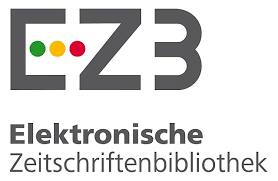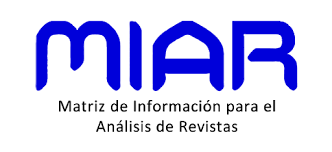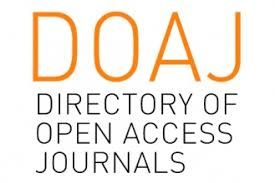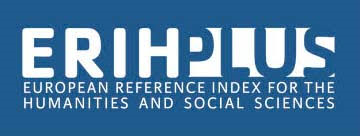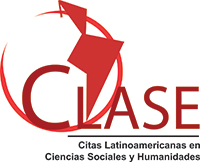O papel dos adjetivos modificacionais no discurso ficcional
DOI:
https://doi.org/10.15448/1984-6746.2023.1.44617Palavras-chave:
metafísica da ficção, discurso ficcional, artefactualismo, adjetivos modificacionais.Resumo
Argumento, seguindo a perspectiva de Amie Thomasson acerca da metafísica da ficção, que os objetos ficcionais são artefatos abstratos. No entanto, o artefactualismo encontra dificuldades em fazer sentido das propriedades que podemos atribuir corretamente a um objeto ficcional: como é possível que um personagem ficcional, como L. B. Jefferies do filme Janela Indiscreta, seja um fotógrafo e um artefato abstrato ao mesmo tempo? Tal personagem pode fazer algo como investigar um crime? A fim de solucionar essa tensão conceitual, introduzo o vocabulário desenvolvido por Andrea Bonomi que trata dos proferimentos ficcionais, metaficcionais e paraficcionais. Então, em oposição às perspectivas que usam a noção de faz-de-contas para analisar o discurso ficcional, apresento a teoria dos adjetivos modificacionais de Hans Kamp e Barbara Partee e argumento que os usos que fazemos do adjetivo ‘ficcional’ são intersectivos no que diz respeito à metafísica dos objetos ficcionais, enquanto são privativos no que diz respeito às propriedades que lhes são atribuídas de acordo com a história. Consequentemente, apesar dos objetos ficcionais não exemplificarem as propriedades que lhes são atribuídas em uma história, uma vez que artefatos abstratos não têm localização espacial e não podem estabelecer interações causais com outros objetos, essas são as propriedades que temos permissões e somos obrigados a lhes atribuir. Assim, apresento uma perspectiva unificada sobre como as nossas práticas de ficção são inteligíveis e estão de acordo com a perspectiva artefactual.
Downloads
Referências
AUSTIN, J. How to do things with words. 2. ed. Cambridge: Harvard University Press, 1975. DOI: https://doi.org/10.1093/acprof:oso/9780198245537.001.0001
BAKER, R. The metaphysics of everyday life. Cambridge: Cambridge University Press, 2008.
BONOMI, A. Fictional contexts. In: BOUQUET, L.; SERAFINI, L.; THOMASON, R. (ed.). Perspectives in context. Stanford: CSLI Publications, 2008. p. 213-248.
BRENTANO, F. Psychology from An Empirical Standpoint. London: Routledge, 2015. DOI: https://doi.org/10.4324/9781315747446
CAPPELLE, B.; DENIS, P.; KELLER, M. Facing the facts of fake: A distributional semantics and corpus annotation approach. Yearbook of the German Cognitive Linguistics Association, [s. l.], v. 6, n. 1, p. 9-42, 2018. Available at:http://dx.doi.org/10.1515/gcla-2018-0002. Accessed on: Nov 3 2023. DOI: https://doi.org/10.1515/gcla-2018-0002
CLAAS, J.; SCHNIEDER, B. Determining and modifying attributes. In: BACIGALUPO, G.; LEBLANC, H. (ed.). Anton Marty and contemporary philosophy. Cham: Palgrave Macmillan, 2019. p. 59-96. DOI: https://doi.org/10.1007/978-3-030-05581-3_4
CURRIE, G. The nature of fiction. Cambridge: Cambridge University Press, 1990.
EVERETT, A. Against fictional realism. Journal of Philosophy, [s. l.], v. 102, n. 12, p. 624-649, 2005. Available at: https://doi.org/10.5840/JPHIL2005102129. Accessed on: Nov 3 2023. DOI: https://doi.org/10.5840/jphil2005102129
INWAGEN, P. Existence, ontological commitment, and fictional entities. In: LOUX, M.; ZIMMERMAN, D. (ed.). The Oxford handbook of metaphysics. Oxford: Oxford University Press, 2003. p. 131-158.
INWAGEN, P. Fiction and metaphysics. Philosophy and Literature, [s. l.], v. 7, n. 1, p. 66-77, 1983. Available at: https://doi.org/10.1353/phl.1983.0059. Accessed on: Nov 3 2023. DOI: https://doi.org/10.1353/phl.1983.0059
INWAGEN, P. Creatures of fiction. American Philosophical Quarterly, [s. l.], v. 14, n. 4, p. 299-308, 1977. Available at: https://www.jstor.org/stable/20009682. Accessed on: Nov 3 2023.
KAMP, H. Two Theories about adjectives. In: KEENAN, E. (ed.). Formal semantics of natural language. Cambridge: Cambridge University Press, 1975. p. 123-155. DOI: https://doi.org/10.1017/CBO9780511897696.011
KAMP, H.; PARTEE, B. Prototype theory and compositionality. Cognition, [s. l.], v. 57, n. 2, p. 129-191, 1995. Available at: https://doi.org/10.1016/0010-0277(94)00659-9. Accessed on: Nov 3 2023. DOI: https://doi.org/10.1016/0010-0277(94)00659-9
KRIPKE, S. Reference and existence. New York: Oxford University Press, 2013. DOI: https://doi.org/10.1093/acprof:oso/9780199928385.001.0001
LEMOS, I. L. What does it take for an author to create a fictional object? Princípios: Revista de Filosofia, Natal, v. 28, n. 56, p. 9-27, 2021. Available at: http://dx.doi.org/10.21680/1983-2109.2021v28n56ID23120. Accessed on: Nov 3 2023. DOI: https://doi.org/10.21680/1983-2109.2021v28n56ID23120
LEMOS, I. L. A Metafísica e a semântica da ficção: uma abordagem artefactual. 2020. 168 f. Thesis (Doctorate in Philosophy) – Centro de Filosofia e Ciências Humanas, Universidade Federal de Santa Catarina, Florianópolis, 2020a. Available at: https://repositorio.ufsc.br/handle/123456789/216498. Accessed on: Nov 3 2023.
LEMOS, I. L. Translation and metaphysics: a case for fictional characters. Cadernos de Tradução, Florianópolis, v. 40, n. 1, p. 110-126, 2020b. Available at: http://dx.doi.org/10.5007/2175-7968.2020v40n1p110. Accessed on: Nov 3 2023. DOI: https://doi.org/10.5007/2175-7968.2020v40n1p110
MARGOLIS, E.; LAURENCE, S. (ed.). Creations of the mind: theories of artifacts and their representation. Oxford: Oxford University Press, 2007. DOI: https://doi.org/10.1093/oso/9780199250981.001.0001
PARSONS, T. Nonexistent objects. New Haven: Yale University Press, 1980.
PARTEE, B. Privative adjectives: subsective plus coercion. In: BAUERLE, R.; REYLE, U.; ZIMMERMANN, T. (ed.). Presuppositions and discourse: essays offered to Hans Kamp. Amsterdam: Elsevier, 2010. p. 273-285. DOI: https://doi.org/10.1163/9789004253162_011
REAR Window. Direction: Alfred Hitchcock. Production: Alfred Hitchcock. Starring: James Stewart, Grace Kelly et al. Screenplay: John Michael Hayes. Los Angeles: Paramount Pictures, 1954. 1 DVD (111 min), son., color.
RECANATI, F. II - Fictional, metafictional, parafictional. Proceedings of the Aristotelian Society, [s. l.], v. 118, n. 1, p. 25-54, 2018. Available at: https://doi.org/10.1093/arisoc/aoy001. Accessed on: Nov 3 2023. DOI: https://doi.org/10.1093/arisoc/aoy001
SCHNIEDER, B.; SOLODKOFF, T. In defence of fictional realism. Philosophical Quarterly, [s. l.], v. 59, n. 234, p. 138-149, 2009. Available at: https://doi.org/10.1111/j.1467-9213.2008.583.x. Accessed on: Nov 3 2023. DOI: https://doi.org/10.1111/j.1467-9213.2008.583.x
SEARLE, J. The logical status of fictional discourse. New Literary History, [s. l.], v. 6, n. 2, p. 319-332, 1975. Available at: https://www.jstor.org/stable/468422. Accessed on: Nov 3 2023. DOI: https://doi.org/10.2307/468422
SMITH, B. Ingarden vs. Meinong on the logic of fiction. Philosophy and Phenomenological Research, [s. l.], v. 41, n. 1-2, p. 93-105, 1980. Available at: https://www.jstor.org/stable/2107393. Accessed on: Nov 3 2023. DOI: https://doi.org/10.2307/2107393
THOMASSON, A. Fiction and metaphysics. Cambridge: Cambridge University Press, 1999.
THOMASSON, A. Speaking of fictional characters. Dialectica, [s. l.], v. 57, n. 2, p. 207-226, 2003. Available at: http://dx.doi.org/10.1111/j.1746-8361.2003.tb00266.x. Accessed on: Nov 3 2023. DOI: https://doi.org/10.1111/j.1746-8361.2003.tb00266.x
TWARDOWSKI, K. Issues in the logic of adjectives. In: PELC, J. Semiotics in Poland 1894-1969. Dordrecht: D. Reidel Publishing Company, 1979. p. 28-30. DOI: https://doi.org/10.1007/978-94-009-9777-6_5
VOLTOLINI, A. How Ficta follow fiction: a syncretistic account of fictional entities. New York: Springer, 2006. DOI: https://doi.org/10.1007/1-4020-5147-6
WALTON, K. Mimesis as make-believe: on the foundations of the representational arts. Cambridge: Harvard University Press, 1990. DOI: https://doi.org/10.2307/2108134
WOOLRICH, C. It had to be murder. New York: Penguin Group, 1998.
ZALTA, E. Abstract objects: an introduction to axiomatic metaphysics. Boston: Kluwer, 1983. DOI: https://doi.org/10.1007/978-94-009-6980-3
Downloads
Publicado
Como Citar
Edição
Seção
Licença
Copyright (c) 2023 Veritas (Porto Alegre)

Este trabalho está licenciado sob uma licença Creative Commons Attribution 4.0 International License.
Direitos Autorais
A submissão de originais para a Revista Veritas implica na transferência, pelos autores, dos direitos de publicação. Os direitos autorais para os artigos publicados nesta revista são do autor, com direitos da revista sobre a primeira publicação. Os autores somente poderão utilizar os mesmos resultados em outras publicações indicando claramente a Revista Veritas como o meio da publicação original.
Licença Creative Commons
Exceto onde especificado diferentemente, aplicam-se à matéria publicada neste periódico os termos de uma licença Creative Commons Atribuição 4.0 Internacional, que permite o uso irrestrito, a distribuição e a reprodução em qualquer meio desde que a publicação original seja corretamente citada. Copyright: © 2006-2020 EDIPUCRS





